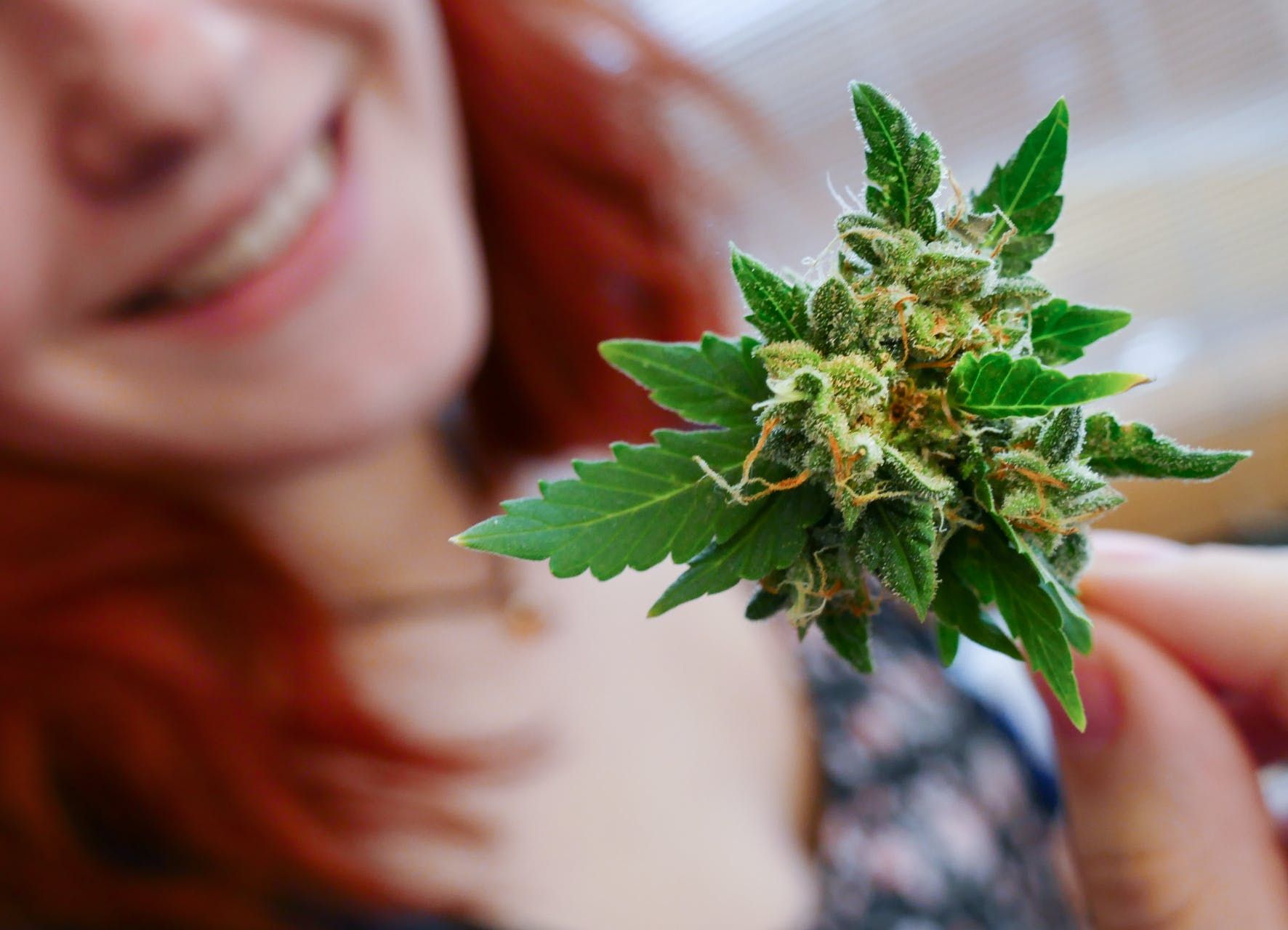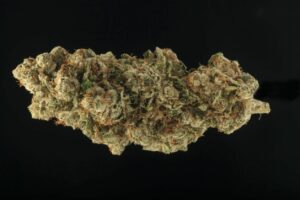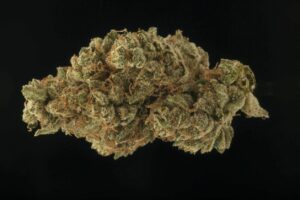For decades, anti-drug campaigns have promoted the message that marijuana harms the brain, thanks to tetrahydrocannabinol (THC), the compound responsible for the plant’s well-known high. At the same time, cannabis advocates point out that the plant has potent powers to heal and protect the brain and body. So, who’s right?
A 2018 study published in the journal Cannabis and Cannabinoid Research shows that the THC in cannabis can in fact change the brain in complex and sometimes contradictory ways. But researchers also concluded that cannabidiol (CBD) can protect the brain from these changes—and even restore brain functions that THC affects.
FOLLOW US ON FACEBOOK & INSTAGRAM
How Does THC Affect the Brain?
THC is an abundant natural compound in the Cannabis sativa plant. It occurs alongside a long list of other compounds and terpenes that work in concert to provide the different smells, tastes and effects of the many cannabis strains.
In some marijuana strains, THC dominates. Cannabis growers have also worked to develop new cannabis strains that have even higher concentrations of THC relative to other compounds like CBD or cannabigerol (CBG).
RELATED: CBG: IS THIS CANNABINOID MORE POWERFUL THAN CBD?
The best-known effect of THC is the euphoric high that makes many people feel relaxed and happy. But in some consumers, and under some circumstances, THC can also have the opposite effect, causing feelings of anxiety, agitation and paranoia.
THC & the Endocannabinoid System
THC can affect people in many complex ways because of its effects on the body’s natural system of cannabinoid receptors, called the endocannabinoid system (ECS). The ECS appears to be responsible for maintaining balance, or homeostasis, among the many subsystems in the body. It also seems to support the immune system and the healthy life cycle of cells.
Endocannabinoid receptors are found in cells and neurons throughout the body, except for the brainstem, where they’re virtually nonexistent. Natural endocannabinoids produced within the body and cannabinoids consumed from outside sources, mainly the cannabis plant, can activate these receptors.
Researchers have discovered two primary endocannabinoid receptors, imaginatively named CB1 and CB2. These receptors respond in different ways to THC, CBD and other cannabis compounds. And this accounts largely for the many different effects cannabis can have.
THC Affects Receptor-Rich Areas of the Brain
THC activates the CB1 receptor. CB1 occurs in various areas of the body, but it’s especially abundant in certain parts of the brain related to mood, memory and cognition, such as:
-
The amygdala: This is an area of the brain in charge of fear responses. The amygdala controls our responses to danger and perceived threats.
-
The prefrontal cortex: This is the part of the brain that’s responsible for executive functions such as making decisions, connecting cause and effect, and using memories of past events to make sense of the present.
-
The cerebellum: This is a brain region responsible for coordinating voluntary movement using information from the senses, the spinal cord and other parts of the brain. The cerebellum accounts for only 10% of the brain’s total weight, but it has nearly half of the brain’s total supply of neurons.
-
The hippocampus: A small area that processes memory and manages emotional responses, the hippocampus is also called the brain’s regeneration center. This is because it constantly produces progenitor cells that become neurons and glial cells. These cells then migrate to other areas of the brain that need to be replenished with new cells.
THC Reshapes the Hippocampus
The hippocampus plays an important role in managing emotion and memory, and in supplying the brain with healthy cells. It’s also a highly plastic region of the brain that variables such as stress, which produces cortisol, can affect by shrinking its various subfields.
Because oxygenation and positive activities like good sleep and exercise can restore the hippocampus, much of the current research has concentrated on exploring how THC affects this essential region of the brain.
The 2018 study reveals that long-term cannabis use is linked to a loss of brain volume in the hippocampus. This study is supported by other research
showing that teens who consume cannabis, even minimally, can also experience these changes in brain volume.
Scientists speculate that because young brains are still developing essential neural pathways, THC can interrupt this process and create deficits that can linger well into adulthood.
The effects of THC on CB1 receptors in the hippocampus, amygdala and related areas of the brain can also explain why this compound can have both positive and negative effects.
THC can stimulate receptors in areas related to pleasure, reward and anxiety to produce its pleasurable effects. But when receptors in these areas are overloaded with THC, they can produce anxiety, fear and other frightening feelings.
CBD can moderate these feelings and even promote recovery from the effects of THC.
CBD Protects Neurons & Balances the Brain
CBD naturally occurs in cannabis along with THC. The two compounds can work together in a kind of synergy to promote healing and balance in the body. CBD doesn’t bind well with either CB1 or CB2 receptors, but it affects a number of other processes in the body.
For example, CBD interacts directly with receptors for serotonin, a neurotransmitter responsible for positive feelings. CBD also influences the release of other chemicals responsible for a number of functions including:
- Sleep
- Aggression
- Appetite
In this way, CBD can moderate the effects of THC and prevent them from getting out of control. CBD can support the relaxing and euphoric responses to THC, and reduce the anxiety and other negative feelings that it can cause.
CBD is also a powerful neuroprotectant and anti-inflammatory. In this role, CBD helps keep the body’s many systems regulated and working in harmony.
Recent studies have shown that CBD, which doesn’t cause a high like THC does, can protect the brain’s neurons from damage caused by diseases such as:
- Parkinson’s disease
- Multiple sclerosis
- Huntington’s disease
- Lupus
- Alzheimer’s disease
CBD can also protect and encourage regeneration in brain cells that have been damaged from events like strokes and traumatic brain injuries.
Because CBD can play such an important role in supporting the brain’s neural networks, recent research also shows that it can protect the brain from the effects of THC, too.
In the 2018 study on THC and the hippocampus, researchers worked with a group of regular cannabis consumers who underwent a series of brain imaging tests before and after the study. These participants were given about 200 mg of CBD daily for a period of several weeks.
At the end of the study, researchers found that most of these cannabis consumers had new growth in several subfields of the hippocampus, and that this growth was more pronounced in the heavier cannabis consumers.
These results, they say, suggest that CBD could be a useful treatment for a wide range of diseases and disorders affecting the brain’s neural functioning.
THC is a powerful cannabis compound that can alter the physical structure of the brain. Meanwhile, CBD provides balance and harmony in the brain’s many systems and protects neurons from the changes THC can cause.
Photo credit: SanderStock/Shutterstock.com
If you’re new to cannabis and want to learn more, take a look at our Cannabis 101 index of articles. And if you have questions about cannabis, ask them and our community will answer.






